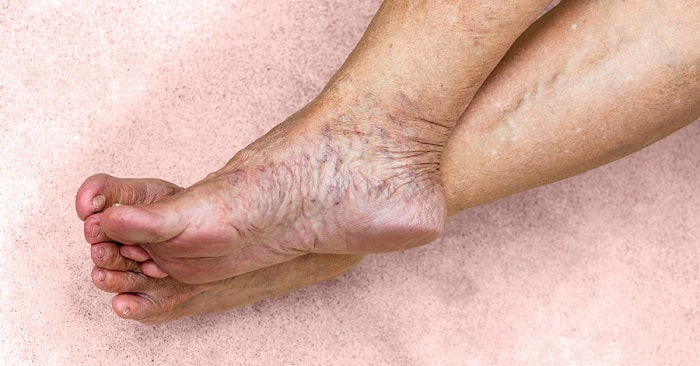If you have chronic venous insufficiency (CVI), it means you have a long-term problem with your veins. Veins bring blood and other fluids back to the heart from different parts of the body. Chronic Venous Insufficiency can cause blood to pool in certain areas, making them swell up. This can lead to a number of problems, including pain, skin changes, and ulcers. Learn more about the signs and treatment of CVI in this post.
Chronic venous insufficiency is a condition that occurs when the veins in your legs are unable to effectively pump blood back to your heart. This can cause a number of symptoms, including pain, swelling, and ulcers. CVI is often caused by valves in the veins that become weak or damaged. When these valves don’t work properly, blood can flow backwards and pool in the veins. Chronic venous insufficiency can also be caused by blood clots, which can block the flow of blood through the veins. Treatment for chronic venous insufficiency typically involves wearing compression stockings to help improve blood flow and reduce swelling. In some cases, surgery may be necessary to repair damaged valves or remove blockages.
In some cases, CVI can also lead to varicose veins. Varicose veins are a common condition that usually affects the legs. They occur when the valves in the veins stop working properly and allow blood to flow backward. This causes the veins to become dilated and twisted. Varicose veins can be painful and uncomfortable, and they can also lead to more serious problems such as blood clots. While chronic venous insufficiency is a common cause of varicose veins, there are other potential causes as well. If you are concerned about your risk of developing varicose veins, it is important to speak with your doctor. The good news is that there are many effective treatments available for chronic venous insufficiency and varicose veins treatment in Scottsdale including sclerotherapy, laser ablation, and surgery.
Symptoms
Chronic venous insufficiency can cause a number of symptoms, including pain, swelling, and cramping. In some cases, it can also lead to more serious problems, such as ulcers and blood clots. If you have chronic venous insufficiency, you may notice one or more of the following symptoms: swelling in your legs or ankles, tight feeling in your calves, itchy or painful legs, pain when walking that stops when you rest, brown-colored skin (often near the ankles), varicose veins, leg ulcers that are sometimes hard to treat, restless legs syndrome, or painful leg cramps or muscle spasms. If you have any of these symptoms, contact your doctor. They can help diagnose CVI and develop a treatment plan that’s right for you.
Treatments
Endovenous laser ablation or radiofrequency ablation (RFA)
Endovenous laser ablation or radiofrequency ablation (RFA) is a minimally invasive treatment that can help improve the symptoms of CVI by closing off the affected veins. RFA involves using a laser or radiofrequency probe to heat the vein, which causes the vein to collapse and seal shut. This procedure is usually performed on an outpatient basis and only takes a few minutes to complete. In most cases, patients are able to return to their normal activities immediately after the procedure. RFA is an effective treatment for CVI and has a low risk of complications. If you are considering RFA for CVI, be sure to discuss all of your options with your doctor.
Sclerotherapy
Sclerotherapy is a treatment that can help to improve the symptoms of CVI by injecting a solution into the affected veins. This solution helps to irritate the vein walls, which causes them to collapse and seals off the blood flow. Sclerotherapy is a safe and effective procedure that can help to improve the quality of life for those affected by CVI.
Surgery
Surgery is typically reserved for cases where other treatments, such as compression stockings and lifestyle changes, have failed to provide relief. There are a number of different surgical procedures that can be used to treat chronic venous insufficiency, and your doctor will select the best option for you based on the severity of your condition and your individual preferences.



















